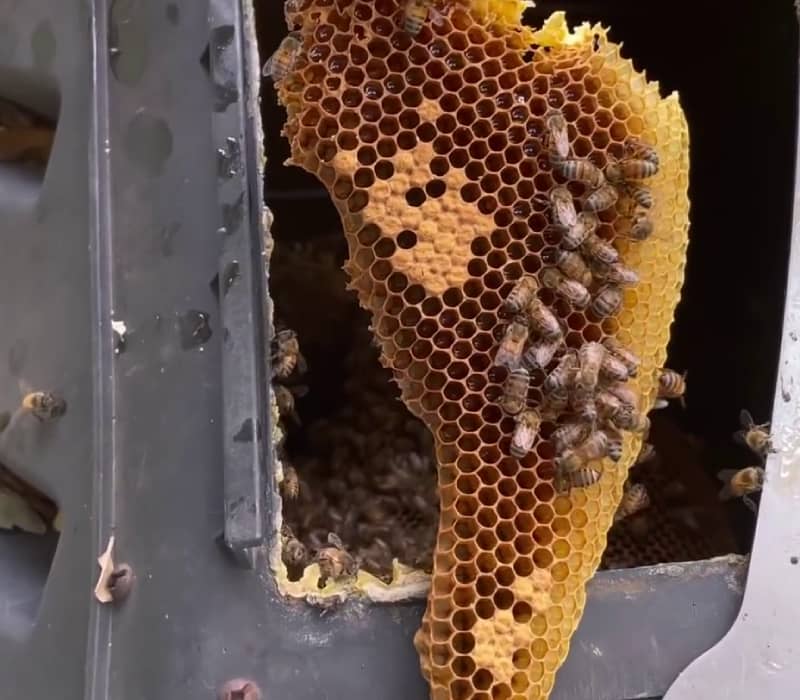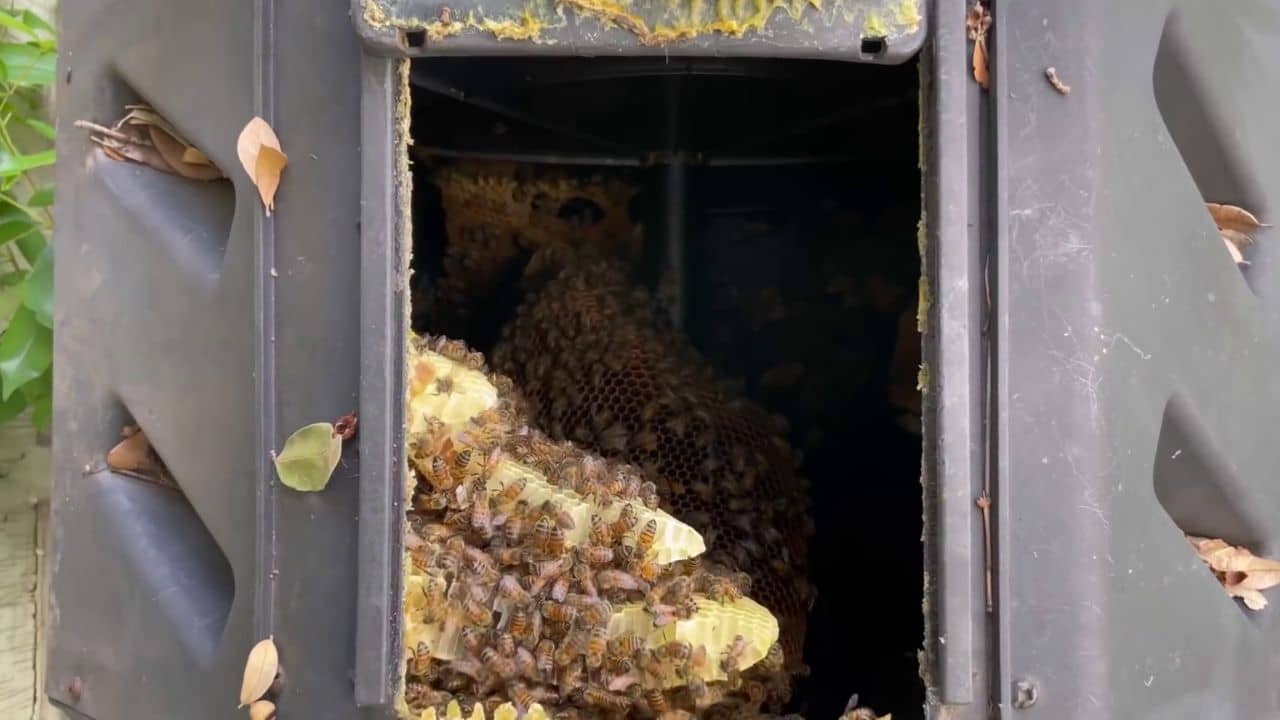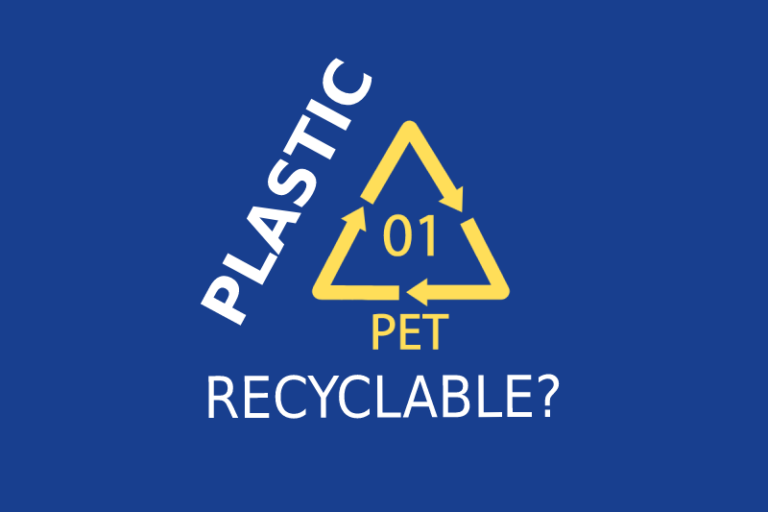Why Are Bees in My Compost Bin (And How To Get Rid of Them)
If you’ve ever looked in your compost bin and seen a bee or two buzzing around, you’re not alone. Bees are attracted to compost bins for a variety of reasons – the most common being that they’re looking for a place to build their hive.
Bees are often attracted to compost bins because they are warm spaces that give off the smell of organic matter and offer them a safe space to nest in. This triggers the bee’s natural instinct to create hives, which is why you may often find a colony nesting in your compost bin.
In this blog post, we’ll discuss the benefits of having bees in your compost bin, as well as how to get rid of them if necessary. I’ll also provide some preventative measures you can take to avoid this situation from happening in the first place!
Why Do You Have Bees Living In Your Compost Bin? 5 Possible Reasons
Bees are attracted to compost bins for a variety of reasons. The most common reason is that they’re looking for a place to build their hive. And in some cases, people use recycling bins as makeshift compost bins. This gives the bees plenty of space to create a healthy hive inside.
Let’s have a look at the possible reasons you may have bees living in your compost bin:
#1 Bees Are Looking For Spaces
When you see a bee buzzing around your compost bin, it’s not because they’re looking for food. Instead, bees are attracted to compost bins because they provide an ideal environment for building hives.
Bees construct their hives by creating a series of hexagonal wax cells, and they need a place where they can build these cells uninterrupted. A compost bin offers the perfect solution: it’s dark, secluded, and protected from the elements.
As a result, it’s not uncommon for bees to take up residence in compost bins. While this may be inconvenient for the compost bin owner, it’s actually good for the bees.
By building their hives in urban areas, bees are able to access a variety of flowers and plants that they wouldn’t otherwise have access to. As a result, urban bee populations are actually more diverse than rural bee populations.
#2 The Smell of Organic Matter
The second reason bees are attracted to compost is the smell of rotting organic matter. The fragrance of decomposing plants and fruits is highly appealing to bees, who will fly toward compost bins in order to get a whiff. This is because bees are attracted to the sweetness of the scent, as well as the pungency of the decomposition.
In addition, the smell of rotting organic matter also provides bees with a way to find food. By flying toward the smell of decomposing plants and fruits, bees are able to locate sources of nectar and pollen. As a result, the fragrance of rotting organic matter is an important cue for bees searching for food.
#3 Bees Look For Warmth
The third reason is the heat generated by the decomposing organic matter. This warmth is essential for bees, as it helps them keep their hives warm during winter.
Additionally, the high temperatures in compost bins help to kill off any harmful bacteria or parasites that may be present.
Ultimately, the presence of bees in a compost bin is a good sign that the composting process is working properly. Bees will only remain in a bin if the conditions are right for them, so their presence is a good indicator that the bin is providing the appropriate level of heat and moisture.
#4 Compost Bins Have A Source Of Food
While bees are most often associated with flowers, they will also visit other sources of food in order to meet their nutritional needs. Compost bins are a prime example of this, as the decomposing organic matter inside contains a lot of nutrients and minerals that bees need.
As a result, bees will often visit compost bins to feast on the bounty inside. While they may not be as graceful as butterfly pollinators, bees play an important role in the ecosystem and deserve our respect.
#5 Compost Bins Seem Safe
Compost bins provide a safe and ideal environment for bees to nest and honey stores. Compost bins are dark and enclosed, making them appealing for bee nesting. The lack of human activity around compost bins also makes them a safer place for bees than other places like gardens or parks. By creating a safe space for bees to nest, we can help to promote their populations.
Tips for Getting Rid of Bees in Your Compost Bin
There are a few ways to disrupt a beehive in your compost bin. If you have bees living in your compost bin, it’s important to be careful when removing them. Bees are essential for pollinating plants and flowers, so killing them should be a last resort.

If you absolutely need to get rid of the bees, there are a few ways you can do it humanely.
One way is to wait until nightfall when all the bees are back in the hive. Then, you can put a lid on the hive to prevent them from getting out.
Another way is to use a bee vacuum. This is a device that sucks up bees without harming them. Once they’re in the vacuum, you can release them into a field or meadow away from your home.
Also, you can use a bee-proof container or bag. Be sure to seal the container or bag tightly so the bees can’t escape.
You should also call a professional beekeeper to safely remove the bees and take them elsewhere.
Lastly, watch this interesting video!
What Should You Not Do With Bees?
There are a few things you should not do if bees have moved into your compost bin.
First, don’t use pesticides or any other chemicals near the hive. This will kill the bees and make the honey inside the hive inedible.
Second, while smoking out techniques can work temporarily, the bees will typically return to their hive in some time. Gentle removal is a better way to take out the bees from your compost bin.
Finally, don’t disturb the hive too much. Bees are very sensitive to vibrations and movement, so if you agitate them too much they may get defensive and start to sting anyone in the vicinity.
How Do I Deter The Bees From My Compost Bin?
If you don’t want bees in your compost bin, there are a few things you can do to deter them.
First, make sure the lid on your compost bin is tight-fitting. Bees are attracted to the smell of rotting food, so if there are any gaps in the lid, they will be able to smell it and be drawn to the bin.
Second, keep your compost bin away from other sources of water. Bees need water to survive, so if they can’t find it near the hive, they will likely move on.
Finally, try using a bee-repellent plant such as eucalyptus or mint near the bin. The scent of these plants will help keep bees away. It also matters what kind of bin you are using. For example, small plastic totes are unlikely to attract bees, whereas larger ones may cause this problem.
You can also consider the pros and cons of keeping the bees in your garden through the table below.
| Advantages of Having Bees | Disadvantages of Having Bees |
|---|---|
| Plant pollination for your garden | May give rise to wild plants and wildflowers |
| Can produce honey that is edible | Sometimes, the honey may not be edible |
| Beeswax and other byproducts are useful | Can sting and cause serious allergies |
Conclusion
Bees are beneficial insects that help pollinate plants and produce honey. However, they can also be a nuisance if they move into your compost bin.
If you don’t want bees in your bin, there are a few things you can do to deter them. If you do have bees in your bin, try not to disturb them too much and make sure not to use any chemicals near the hive.
Bees are an important part of our ecosystem and should be respected as such.
Thanks for reading!
Sources
- University of Missouri Extension: Honey Bees as Pollinators, Their Habitats and Products.
- Mary River Catchment Coordinating Committee: Planting and Creating Habitat to Attract Bees.







